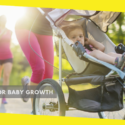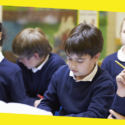Summer Camp and Social Communication for Kids With Autism

What’s one of the top things we all want for our children to experience? The ability to meet and make new friends, enjoy a memorable summer, and perhaps experience a little flexibility in their schedules/lives? Many parents would agree that the ability to meet new friends and build relationships is high on the list. For parents of children with an Autism Spectrum Disorder (or ASD), this experience may mean the world as such children often struggle in social engagements, either unable to master the keys to social situations or too anxious to try. But what if children with ASD were given a supportive environment in which they did not just learn about social cues and responses, but were given numerous opportunities to practice such skills in real time, live, as they learned them? This is one of the beautiful and amazing benefits of a summer camp for children with autism.
One of the hallmark challenges for someone on the autism spectrum is difficulty with social communication. Children with autism often do not understand how to read non-verbal cues, such as body language, when to respond appropriately in social interactions, and how to develop and maintain relationships. Imagine a child with autism working closely with an aid in an academic setting to address these difficulties. Maybe they complete worksheets together to help identify different types of body language, practice shaking hands, or build up comfort with eye contact (for example). While these are worthwhile activities to build basic concepts and skills, they do not allow for practice in real-life scenarios. Now take that child out of the academic setting and place in a supportive camp, where he or she can actively practice building skills and social competencies with similar peers, under the guidance of trained and highly-skilled staff. The child may reflect on the worksheets to help with a foundational understanding, but he or she will now have the opportunity to actively engage with their bunkmates in an assignment, or learn to kayak simultaneously with a peer, overcome a fear by jumping off a dock into a lake, or practice a new sing-along for the evening gathering. Whatever the activity may be, children with autism who attend camp work intentionally to build direct experience with social communication.
Aside from the highly trained staff of Talisman Camp at an autism summer camp, children with ASD are able to build their new skills with other children who have similar disorders. Autism summer camps are not mainstream camps for children of all abilities, where a child with ASD may struggle to practice his or her skills because of children/staff who are not aware of ASD challenges – such mainstream peers may be impatient, lack understanding, or engage in teasing/bullying when in social settings with a child with ASD. Instead, fellow campers at an autism summer camp are faced with similar struggles, so they too are actively practicing how to put themselves in their peer’s shoes and build new friendships. Children with ASD who attend specialized summer camps often report making some of their first and best friends, wanting to return year after year to continue those relationships.
If you are considering a summer camp for your child with ASD, seek out a specialized program familiar with ASD challenges and discuss how they promote social communication when you contact the admissions team.
Author Bio
Shawn is a passionate health blogger. He served as a volunteer in a peace corps in Africa. Because of his passion toward writing and helping others, he started his career as a writer with Talisman summer camps where he now works as a content manager. He is a regular volunteer at the hospital for special children, when he is not working or volunteering at the children’s hospital, he likes to fishing with his father.
Recommended For You
Can Moms Have it All? Balancing Kids, Work, and Essential Self-Care
Most Inside
Most Inside offers high-quality recommendations and valuable updates to enhance all aspects of your life, providing premium guidance and enriching experiences.




